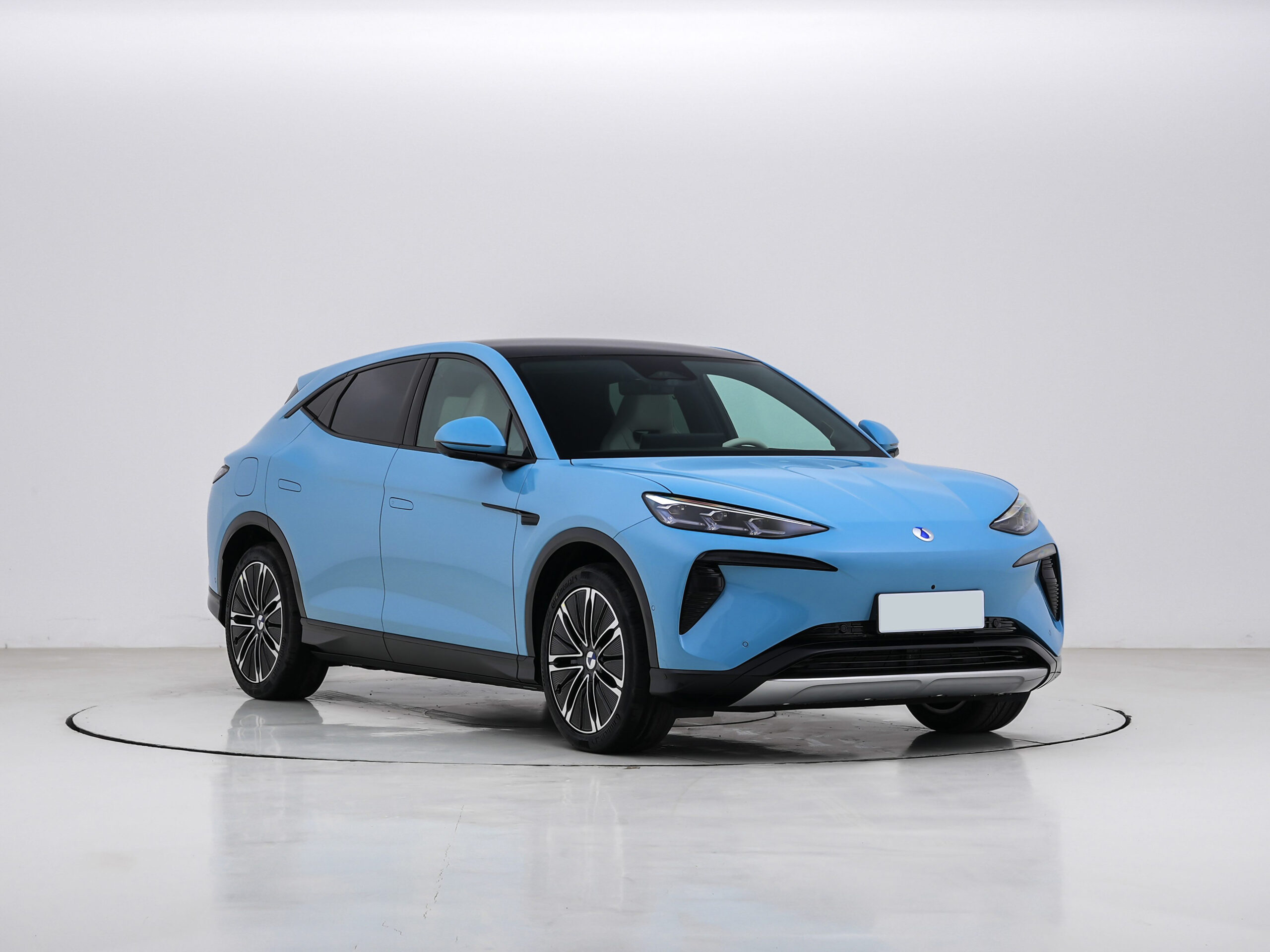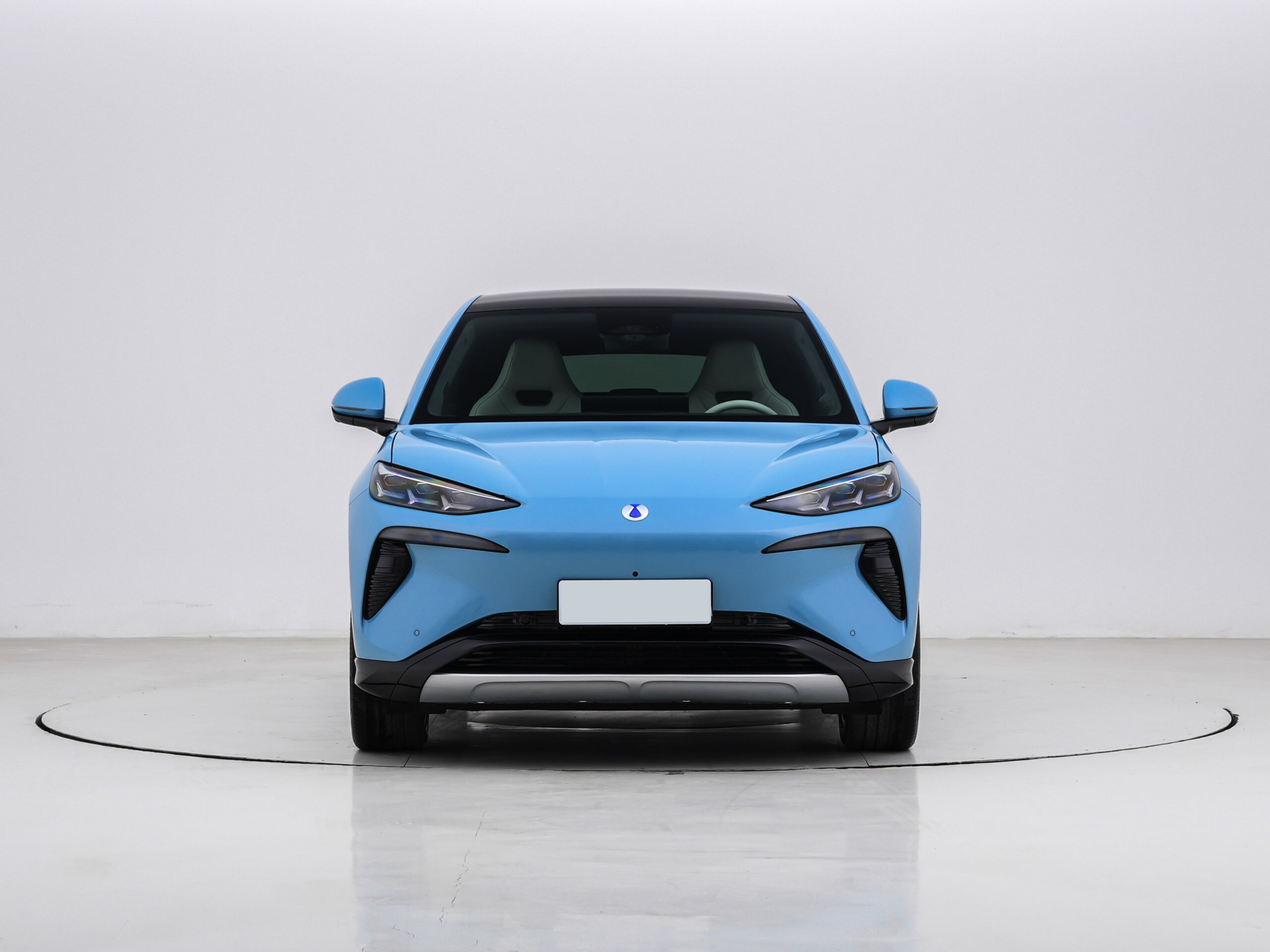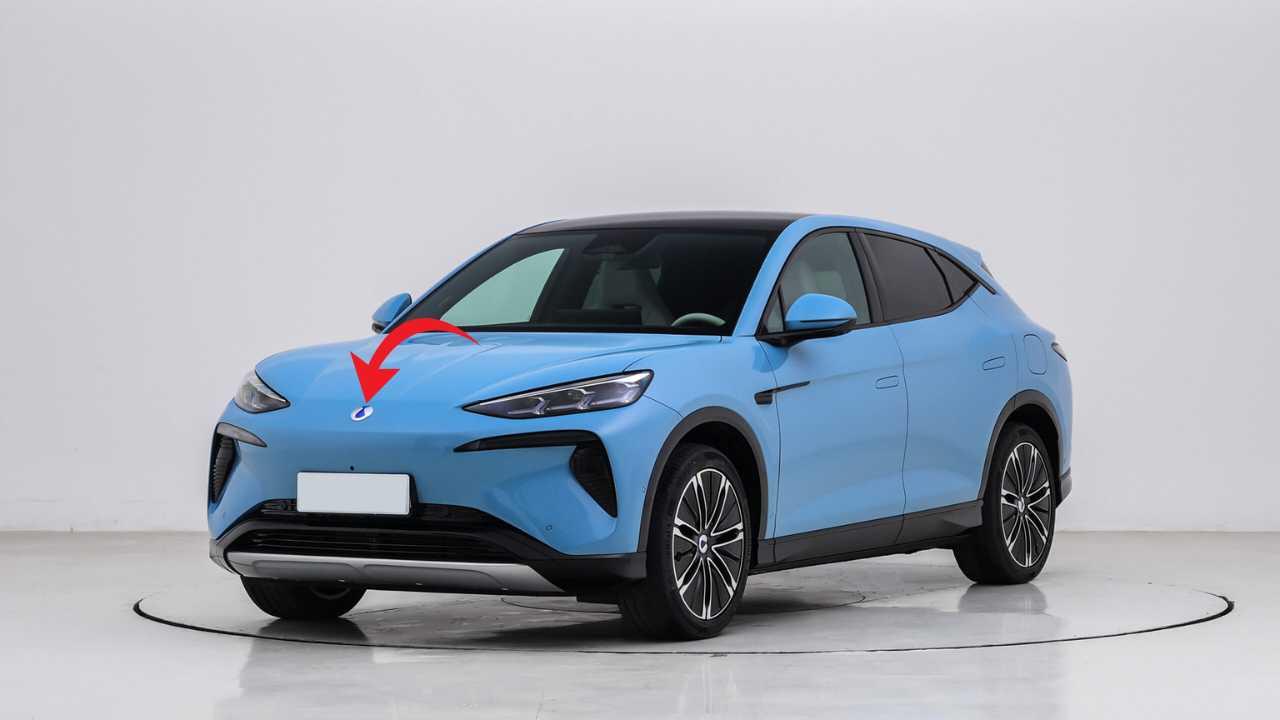The automotive landscape continues evolving at breakneck speed. Chinese manufacturer BYD has thrown down the gauntlet with their latest offering – the Denza N7 SUV.
This isn’t just another electric vehicle entering an already crowded market. The N7 represents BYD’s bold attempt to crack the premium segment traditionally dominated by German luxury brands.

The Premium Push
BYD’s strategy with the Denza N7 is crystal clear. They’re not content with budget-friendly vehicles anymore.
The company wants a piece of the lucrative luxury pie. Their target? BMW buyers who value sophistication and cutting-edge technology.
Design Philosophy That Speaks Volumes
The N7’s exterior commands attention from every angle. Sleek lines flow seamlessly from front to rear, creating an aesthetic that’s both modern and timeless.
Chrome accents strategically placed throughout the body add that premium touch. The LED lighting signature gives the vehicle a distinctive personality that’s hard to ignore.
Inside, the cabin tells a story of meticulous attention to detail. Premium leather wraps almost every surface, while ambient lighting creates an atmosphere of refined luxury.
The dashboard layout prioritizes both functionality and visual appeal. Digital displays blend harmoniously with traditional controls, offering the best of both worlds.
Technology That Impresses
Infotainment Excellence
The centerpiece of the N7’s tech arsenal is its massive infotainment screen. This isn’t just a display – it’s a command center for the entire vehicle experience.
Voice recognition responds to natural language commands with impressive accuracy. The system learns user preferences over time, becoming more intuitive with each interaction.
Smartphone integration works flawlessly across both Android and iOS platforms. Wireless charging keeps devices powered without the hassle of cables cluttering the cabin.
Advanced Driver Assistance
Safety features in the N7 rival those found in vehicles costing twice as much. Adaptive cruise control maintains safe following distances automatically.
Lane-keeping assistance gently steers the vehicle back on track when needed. Emergency braking can prevent collisions before they happen.
The 360-degree camera system provides a bird’s-eye view during parking maneuvers. Blind-spot monitoring adds an extra layer of confidence during lane changes.
Performance Credentials
Electric Powertrain Sophistication
Under the hood – or rather, under the floor – lies BYD’s latest battery technology. The N7’s powertrain delivers instant torque that puts many gasoline engines to shame.
Acceleration from zero to sixty happens in under six seconds. That’s sports car territory achieved with silent electric efficiency.
Range anxiety becomes a thing of the past with over 400 kilometers on a single charge. Fast-charging capability means minimal downtime during longer journeys.
Handling Dynamics
The N7’s suspension system strikes an excellent balance between comfort and control. Air suspension automatically adjusts to road conditions and driving preferences.
Steering feel is precise without being overly heavy. The vehicle responds predictably to driver inputs, inspiring confidence on winding roads.
Weight distribution benefits from the low-mounted battery pack. This design choice significantly improves the vehicle’s center of gravity and overall stability.
Luxury Features That Matter
Comfort and Convenience
Heated and ventilated seats ensure year-round comfort regardless of weather conditions. Memory settings remember individual preferences for multiple drivers.
The panoramic sunroof floods the cabin with natural light. At night, it offers passengers a clear view of the stars above.
Dual-zone automatic climate control maintains perfect temperatures throughout the cabin. Air purification systems keep the interior environment fresh and clean.
Audio Experience
The premium sound system delivers concert-hall quality audio reproduction. Multiple speakers strategically placed throughout the cabin create an immersive listening experience.
Noise cancellation technology actively reduces road and wind noise. Conversations become easier, and music sounds clearer at highway speeds.
Sound tuning can be customized to individual preferences. Whether you prefer deep bass or crisp highs, the system adapts accordingly.
Market Positioning Strategy
Pricing Advantage
BYD’s pricing strategy for the N7 is aggressive yet sensible. The vehicle offers BMW-level luxury at a significantly lower price point.
This value proposition appeals to buyers who want premium features without premium prices. The savings can be substantial compared to traditional luxury brands.
Financing options make the N7 accessible to a broader range of customers. Competitive lease rates further enhance the vehicle’s attractiveness.
Brand Perception Evolution
Chinese automotive brands have come a long way in recent years. BYD is leading this transformation with vehicles like the N7.
Quality perception continues improving as Chinese manufacturers invest heavily in research and development. The N7 represents years of advancement in materials, manufacturing, and design.
Consumer attitudes are shifting as well. Buyers increasingly prioritize value and features over badge prestige alone.
Competitive Landscape Analysis
BMW X3 Comparison
The BMW X3 has long been a benchmark in the premium SUV segment. However, the N7 challenges this dominance with compelling alternatives.
Technology integration in the N7 often surpasses what BMW offers. The infotainment system feels more modern and responsive than BMW’s iDrive.
Interior space utilization favors the N7 in several key areas. Rear passengers enjoy more legroom and headroom than the X3 provides.
Tesla Model Y Considerations
Tesla’s Model Y dominates the electric SUV conversation, but the N7 offers different strengths. Build quality and interior materials feel more premium in the BYD.
Service network availability varies significantly between the two brands. Tesla’s supercharger network remains an advantage, though this gap is narrowing.
Price competitiveness depends on specific trim levels and available incentives. Both vehicles offer compelling value propositions in their own ways.
Manufacturing Excellence
Quality Control Standards
BYD’s manufacturing facilities employ state-of-the-art quality control measures. Robotic precision ensures consistent build quality across all vehicles.
Material selection prioritizes durability and environmental sustainability. Recycled components are used wherever possible without compromising quality.
Testing procedures subject each N7 to rigorous evaluation before leaving the factory. This attention to detail shows in the finished product’s refinement.
Production Capacity
Scaling production to meet demand requires significant investment and planning. BYD has expanded manufacturing capacity specifically for the Denza lineup.
Supply chain management ensures consistent parts availability. Long-term partnerships with suppliers provide stability and cost control.
Export readiness means the N7 can reach international markets efficiently. Global distribution networks are already being established.
Future Outlook
Market Expansion Plans
BYD’s ambitions extend far beyond the domestic Chinese market. The N7 is designed with global appeal in mind.
European markets represent a significant opportunity for luxury electric vehicles. Early reception suggests strong potential for the N7 in these regions.
North American expansion faces more regulatory hurdles but remains a long-term objective. Success in other markets will help build momentum for eventual US entry.
Technology Evolution
Continuous improvement ensures the N7 will evolve with changing customer expectations. Over-the-air updates add new features and capabilities regularly.
Autonomous driving capabilities will expand as regulations and technology mature. The N7’s sensor suite provides a strong foundation for future enhancements.
Battery technology advances promise even greater range and faster charging. Next-generation chemistry could revolutionize the electric vehicle experience.
Customer Experience Focus
Service Network Development
Owning a premium vehicle requires premium service support. BYD is investing heavily in dealer network expansion and training.
Mobile service options bring maintenance to the customer’s location. This convenience factor differentiates the brand from traditional luxury competitors.
Parts availability ensures minimal downtime for repairs and maintenance. Strategic inventory placement reduces wait times significantly.
Ownership Benefits
Warranty coverage for the N7 exceeds industry standards. This confidence in product quality reassures potential buyers.
Complimentary maintenance programs reduce ownership costs during the initial years. These programs demonstrate BYD’s commitment to customer satisfaction.
Loyalty programs reward repeat customers with exclusive benefits and privileges. Building long-term relationships remains a key strategic priority.
Global Market Implications
Industry Transformation
The N7’s entry into premium markets signals a fundamental shift in automotive hierarchy. Traditional boundaries between budget and luxury brands are dissolving rapidly.
European manufacturers face unprecedented challenges from technically competent Chinese alternatives. Market share erosion in key segments threatens established business models significantly.
Consumer perceptions about Chinese automotive quality continue evolving positively. Real-world experiences with vehicles like the N7 drive this changing sentiment.
Supply Chain Advantages
BYD’s vertical integration provides significant cost advantages over traditional manufacturers. Battery production, semiconductor manufacturing, and component sourcing are controlled internally.
This integrated approach enables faster innovation cycles and better cost control. Traditional manufacturers struggle to match this operational efficiency.
Raw material access through Chinese supply chains provides stability during shortages. Lithium, rare earth elements, and other critical materials are more readily available.
Investment and Development
Research and Development Focus
BYD’s R&D spending rivals that of established luxury manufacturers. Investment priorities emphasize battery technology, autonomous systems, and manufacturing efficiency.
Partnership agreements with technology companies accelerate development timelines. Collaboration with software firms enhances infotainment and connectivity capabilities.
Patent portfolios in electric vehicle technology provide competitive advantages. Intellectual property development secures long-term market positions.
Manufacturing Innovation
Advanced manufacturing techniques reduce production costs while improving quality. Robotic assembly lines ensure consistent precision across all vehicles.
Lean manufacturing principles minimize waste and maximize efficiency. Production flexibility allows rapid adaptation to market demand changes.
Quality control systems employ artificial intelligence for defect detection. Machine learning algorithms continuously improve inspection accuracy and speed.
Cultural and Social Impact
Changing Consumer Attitudes
Younger buyers show less brand loyalty to traditional luxury marques. Technology features and value propositions influence decisions more than heritage alone.
Social media influences purchasing decisions through peer reviews and experiences. Online communities share real-world ownership experiences extensively.
Environmental consciousness drives preference for electric vehicles regardless of origin. Sustainability considerations often outweigh traditional brand preferences.
Status Symbol Evolution
Luxury vehicle ownership traditionally conveyed social status through brand recognition. The N7 challenges these conventions with substantive luxury at accessible prices.
Tech-savvy consumers increasingly value innovation over established prestige. Advanced features and capabilities create new forms of automotive status.
Economic pragmatism influences luxury purchases more than previously observed. Buyers seek genuine value rather than paying premiums for brand names alone.
Regional Market Analysis
European Expansion Strategy
European markets represent significant opportunities for premium electric vehicles. Regulatory support and infrastructure development favor electric mobility adoption.
Local partnerships with established dealers could accelerate market entry. Existing service networks provide customer confidence in after-sales support.
Homologation requirements for European markets necessitate specific adaptations. Safety standards and emissions regulations require careful compliance planning.
North American Considerations
US market entry faces political and regulatory challenges beyond technical requirements. Trade relationships significantly influence market access possibilities.
Canadian markets may provide easier entry points for North American expansion. Regulatory frameworks are often more accommodating to international manufacturers.
Mexico’s automotive manufacturing presence could support regional production strategies. Local assembly might address trade and logistics concerns effectively.
Economic Impact Assessment
Job Creation Potential
Manufacturing expansion creates employment opportunities in multiple sectors. Assembly plants, supplier networks, and service centers all require skilled workers.
Technology transfer benefits local automotive ecosystems. Engineering expertise and manufacturing knowledge spread throughout regional industries.
Export activities generate foreign currency earnings for manufacturing regions. Successful international sales contribute significantly to economic development.
Market Disruption Effects
Established manufacturers face pressure to accelerate electric vehicle development programs. Competitive threats drive innovation and investment acceleration.
Supplier relationships throughout the industry experience restructuring pressures. Traditional partnerships may shift toward more cost-effective alternatives.
Pricing pressures affect profit margins across the premium vehicle segment. Value competition forces efficiency improvements throughout the industry.
Long-term Strategic Outlook
Brand Evolution Trajectory
BYD’s progression from battery manufacturer to premium automaker demonstrates strategic vision. Vertical integration provides sustainable competitive advantages.
Brand perception improvement requires consistent quality delivery over time. Customer satisfaction and reliability records will determine long-term success.
International expansion success depends on cultural adaptation and local partnerships. Understanding regional preferences ensures product-market fit.
Technology Leadership Ambitions

Autonomous driving capabilities represent the next competitive frontier. The N7’s sensor architecture provides foundations for future autonomous features.
Connectivity and software-defined vehicle features will differentiate future products. Over-the-air capabilities enable continuous improvement and new revenue streams.
Energy storage integration beyond vehicles creates ecosystem opportunities. Home energy storage and grid services expand business model possibilities.
Investment Implications
Capital Requirements
Global expansion requires substantial financial resources for manufacturing, distribution, and marketing. Investment commitments span multiple years and markets.
Research and development spending must continue increasing to maintain competitive positions. Technology leadership requires ongoing financial commitment.
Service network development needs significant upfront investment before generating returns. Customer support infrastructure is essential for premium market success.
Risk Assessment Factors
Regulatory changes could significantly impact market access and profitability. Political relationships between countries affect international business operations.
Technology obsolescence risks require continuous innovation investment. Rapid industry evolution makes long-term planning challenging.
Currency fluctuations affect international operations and pricing strategies. Global business operations face inherent financial volatility risks.
Frequently Asked Questions
Q: How does the Denza N7’s price compare to BMW X3?
The N7 typically costs 20-30% less than a similarly equipped BMW X3 while offering comparable luxury features and advanced electric technology.
Q: What is the charging time for the Denza N7?
Fast charging can replenish 80% of the battery in approximately 45 minutes using compatible DC charging stations, while home AC charging tatkes 8-10 hours.
Q: Does BYD offer warranty coverage for the Denza N7?
Yes, BYD provides comprehensive coverage including an 8-year/150,000-kilometer battery warranty and 6-year/150,000-kilometer vehicle warranty with global service support.
Also Read: BYD Shark 6 PHEV, Taking on Ford Ranger in Australia

